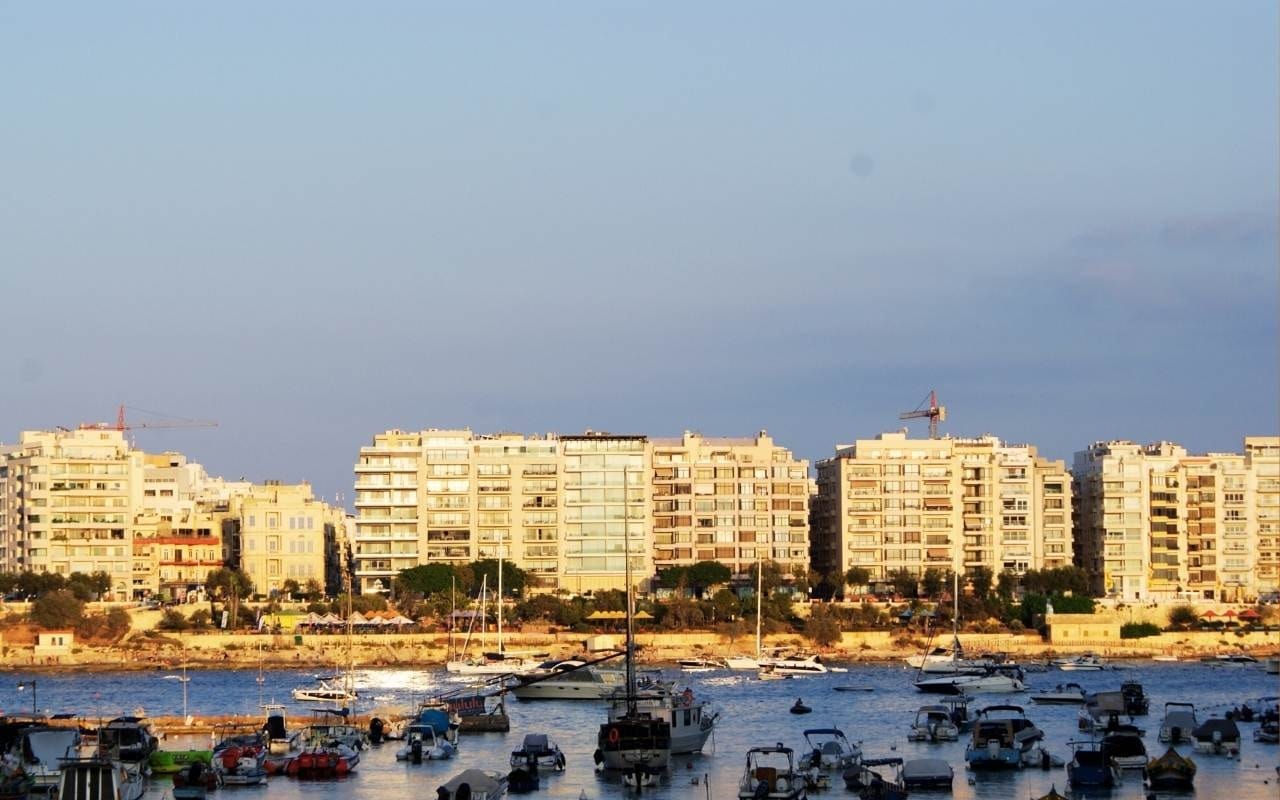What is the Fulbright Scholarship?


For those of you lucky enough to travel outside of the US, the memories made abroad might be one of your most treasured. From the vibrant plumage of Amazon birds to the breathtaking architecture of European cities, there are whole worlds existing just at the edge of our own.
Fortunately, there are many programs that will provide an unforgettable educational experience abroad. One such program that supports these individuals is the Fulbright Program, which awards scholarships to students, enabling them to learn, engage, and exchange ideas with students from different cultures.
In this article, I'll explore the history, requirements, and application process for the Fulbright Scholarship, including some handy advice on how to win one. With my expertise as the daughter of an American diplomat and the first-hand experience of a recent Fulbright scholarship winner, Madeleine, I'll be sure to drop some insider info and tips on this amazing scholarship program.
The Fulbright is just one of many scholarships available to you. Create a free applicant profile with Bold.org and start applying for exclusive scholarships to fund your international education!
Get Matched to Thousands of Scholarships
Create your Bold.org profile to access thousands of exclusive scholarships, available only on Bold.org.
Create Free ProfileHistory of the Fulbright Program
Established in 1946, the Fulbright Foreign Student Program was created by Senator J. William Fulbright and became the largest education exchange program. William Fulbright proposed a bill to promote peaceful relations in the aftermath of World War II and the creation of the United Nations, thus creating this cultural exchange program in accordance with that mission.
The Bureau of Educational and Cultural Affairs of the U.S. Department of State is the primary sponsor of the Fulbright Program, and it awards around 8,000 scholarships annually, 3,000 of which are for individuals in the Fulbright U.S. Student Program. This program is supervised by the Fulbright Foreign Scholarship Board, which was established by Congress.

Types of Fulbright Scholarships
So, what is the Fulbright Scholarship? There are various types, but they're all used for professional advancement and community engagement on a global scale. The Fulbright Program facilitates cultural exchange in several academic disciplines at host institutions or aims to uplift foreign students in the host country.
The U.S. student program has four types of Fulbright grants that you can apply to:
- Fulbright Open Study/Research Award: a Fulbright grant where applicants propose their own research project with an advisor in the country of their choice. Students can choose from 140 different countries.
- Fulbright English Teaching Assistant (ETA) Programs: winning applicants teach English abroad and serve as cultural ambassadors for the U.S. during their time abroad. Applicants can only apply to one country and the age level will vary by each country.
- Fulbright National Geographic Award: Support applicants using digital media and storytelling to promote cultural exchange. National Geographic provides training, and fellows' work is featured on its blog.
- Fulbright Hays Doctoral Dissertation Research Abroad Program: funds doctoral candidates to conduct research in foreign regions, focusing on non-Western languages, area studies, and global cultural understanding.
If you're interested in the Fulbright ETA scholarship, you'll also want to check out these unique scholarships for teachers!

Fulbright Scholarship Requirements
- U.S. Citizenship: Applicants must be citizens or nationals of the United States at the time of application. Permanent residents are not eligible.
- Bachelor's Degree or Equivalent: A bachelor's degree or equivalent qualification is required before the start of the grant period. Students may apply during their final year of undergraduate study. Graduate students can apply but cannot hold a PhD.
- No Previous Extensive Time in the Host Country: Applicants should not have lived or studied for an extended period of time (6 months or more) in the country they are applying to, excluding undergraduate study abroad experiences.
- Proficiency in the Host Country’s Language: Some programs may require proficiency in the language of the host country, especially for research grants or teaching roles. Requirements vary depending on the country.
- Not a Dependent of a Department of State Employee: Applicants cannot be employees of the Department of State or company that is contracted by the Department of State. This also extends to dependents of employees.

Being a Fulbright Scholar: What Does That Mean?
Being a member of the Fulbright scholar program means you uphold the Fulbright mission of promoting mutual understanding and sharing your culture while observing and respecting the culture of your host country. Fulbright scholars serve as cultural ambassadors, mentors, and students, among other roles, and many members of the Fulbright program describe their experience as life-changing.
"For me personally, it means committing to sustained and meaningful cross-cultural exchange — spending time in a new part of the world not just to extract your own enjoyment from the experience, but to offer your knowledge and skills as well, and to be truly open to learning new things about yourself and the world." - Madeleine Adriance, Fulbright ETA Grant Winner for 2025
Expectations
During their grant length, Fulbright scholars are expected to leave their home country to work and learn from the individuals they meet in their host country. They're expected to exchange ideas within their host community and fulfill the Fulbright Program's mission through direct interaction with others. International education should be the aim of Fulbright scholars all over the world.
Post-Fulbright
After their Fulbright experience, Fulbright scholars are expected to participate in Fulbright alumni activities and networking events and continue fostering the relationships they made as students, scholars, teachers, etc. This community of Fulbright scholars is part of what makes the Fulbright program so valuable.
It offers members the opportunity to continue to foster their knowledge of educational and cultural affairs and offer guidance and mentorship to new Fulbright scholars who share a mutual understanding of their experiences.
We all have extraordinary backgrounds and experiences. That's why, at Bold.org, we offer an innovative scholarship search engine that allows you to find scholarships tailored to your state, major or year!

Tips For Winning a Fulbright Scholarship
Winning a Fulbright is not the easiest of tasks. However, with the right amount of preparation and dedication to the application, Fulbright applicants have a strong chance of winning a scholarship.
Tip #1: Don't Apply to a Country You Have Lived In
It is recommended that you don't apply for an award in a country where you have a lot of experience living. You should still study and do research about the country you're applying to. However, the Fulbright Program will see it as a disadvantage if you already have extensive experience in that country.
Tip #2: Be Passionate About Your Chosen Country
While you don't want to apply to a country you've lived in, you also want to make sure you're passionate about the specific opportunities that your chosen country brings you. The strongest applicants will have a strong project proposal driven by a relevant and personal desire to connect with that country's culture and society.
"I chose Argentina specifically because it is the home of several of my favorite writers (including Alejandra Pizarnik and Jorge Luis Borges), and it has an amazing, robust ecosystem of experimental theater — a field I’ve been wanting to explore." - Madeleine
To aid you in choosing a country to apply to, check out this comprehensive list of the best places to study abroad in!

Tip #3: Don't Wait to Get Feedback
Don't wait until the day before the application deadline for someone to review your materials. It is highly recommended that you have at least one person give you feedback on your abstract, proposal, statement of purpose, and personal statement. Make sure these materials show how you plan to engage with the host country and explain why you're capable of carrying out this project.
Tip #4: Apply Through Your University
Whether you're a graduate student or college senior, it is encouraged that you apply for the Fulbright Program through your school so that you have access to more resources and advisors who are equipped to help you apply for any of the Fulbright scholarships. You can find out more by visiting the Fulbright website.
I got a lot of feedback and advice! [My university] offers many structures of support, including online resources like templates/examples of past successful applications, and having you turn in multiple drafts to advisors." - Madeleine
Tip #5: Be Clear and Purposeful
When applying for a Fulbright, your personal statement is your chance to showcase not only your qualifications but also your motivations and aspirations. Take time to carefully articulate why you are passionate about the country you’re applying to and how the experience will help you grow academically, professionally, and personally.
"You only have 2 pages to make a case for yourself, so it’s worth it to spend the time crafting what you write!" - Madeleine
Need some more tips on writing a personal statement? Check out our guide on writing a personal statement for college!

How to Apply for a Fulbright Scholarship: A Step-by-Step Guide
- Submit a Project Statement
- Write a detailed project statement explaining your project, how you will execute it, and why you are the best candidate for the task.
- Include how your project will benefit the host country or institution.
- Prepare Your Resume/CV
- Tailor your resume or CV to highlight the strengths and expertise that are relevant to your project.
- Ensure it aligns with your project goals and the requirements of the Fulbright grant.
- Request Letters of Recommendation
- Obtain strong letters of recommendation that emphasize your qualifications and project readiness.
- Ensure these letters are submitted by the application deadline. They can be submitted before or after completing the rest of your application.
- Write a Series of Short Essays
- Craft thoughtful essays explaining why you chose the host country and how the Fulbright award fits into your career trajectory.
- Demonstrate your knowledge of cultural affairs in the host country and explain how you will serve as a cultural ambassador for the U.S.
- Complete Language Proficiency Evaluations (if required)
- Check if your award requires or recommends language proficiency.
- Complete a self-evaluation and arrange for a qualified evaluator to confirm your language proficiency, if necessary.
- Obtain a Letter of Invitation (if required)
- Determine if your host institution requires a letter of invitation by reviewing the award catalog.
- If needed, secure and submit this letter before the application deadline to avoid disqualification.
- Prepare a Portfolio or Bibliography (if required)
- Check if the award you are applying for requires a portfolio, bibliography, or syllabi.
- For teaching/research awards, provide a bibliography and syllabi demonstrating your expertise.
- If applying in the arts or similar fields, create a digital portfolio showcasing your work.
- Review the Instructions
- Carefully read and follow all instructions provided for your specific Fulbright application.
- Ensure that each component of the application is complete and submitted on time.
By following these steps, you'll be well on your way to completing a strong application for the Fulbright program.
While the Fulbright program is an amazing opportunity, you don't want to miss out on these study abroad scholarships! Feel free to submit applications to multiple, in addition to the Fulbright!

Frequently Asked Questions About Fulbright Scholarships
How prestigious is the Fulbright Scholarship?
The Fulbright Program has a reputation as one of the most prestigious education exchange programs worldwide. It is one of the largest educational and cultural affairs exchange programs in the country and invites graduate students, college seniors, and working professionals who demonstrate academic merit to apply.
How much does Fulbright give?
The majority of Fulbright grants consist of a monthly stipend that varies between $1,600-$2,500 depending on the host country. The Fulbright Program will typically cover your round-trip ticket as well, and if you're awarded an academic scholarship, Fulbright will cover the cost of your studies.
When you're applying for admission, the Fulbright grant will cover the cost of applying to 5 U.S. universities. Fulbright awardees also have health insurance that will cover the basic essentials, as well as student travel insurance.
How many people apply for Fulbright?
The competition and number of applicants can vary by country. In the 2020-2021 award cycle, the United Kingdom had a total of 1,029 applicants and awarded grants to 4% of the applicant pool. Germany received 577 applicants in its most recent cycle and was awarded 210 Fulbright grants that same year. Other countries have their own unique award rates based on the number of applications received.
Want the inside scoop on more scholarships and education-related matters? Head on over to our scholarship blog, written for students by students!